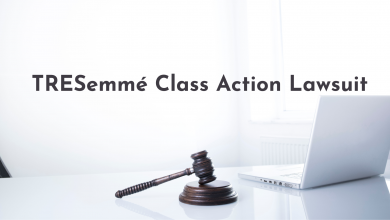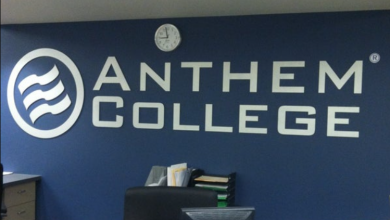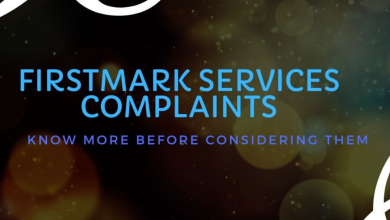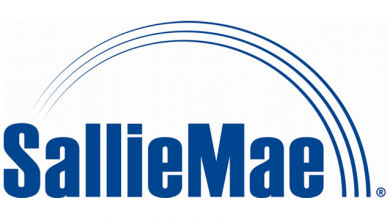National Collegiate Student Loan Trust Guide
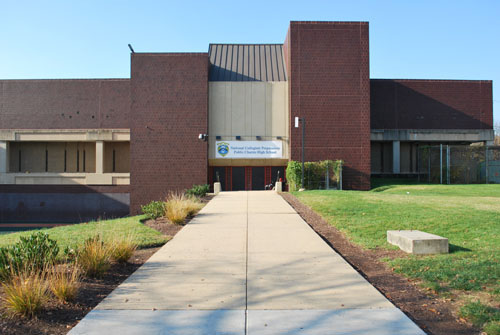
Millions of students decide to get a college degree after graduating from high school. But they did not have enough funds for the college tuition and fees, so they borrowed from the federal government. However, for some reason, some students couldn’t acquire federal student loans, so they went in for private student loans. Unfortunately, private student loans don’t offer the same protection as federal loans, and now they’re in trouble of getting a lawsuit by the National Collegiate Student Loan Trust.
There’s a high probability that you will receive a collection of lawsuits from the National Collegiate Trust if you don’t pay your student loans when they are due. The National Collegiate Student Loan Trust is currently one of the organizations that files lawsuits against students who borrow from private student loans in the United States.
If you are a private student loan holder and you face difficulties in paying back your loan debts, then you might be in luck. In 2019, the national college trust made a big clerical mistake, and it might get you out of student debt.
What to Expect From This Guide
In this guide, you’ll know the cause of the mistake and if it’s possible to get relief from the NCT lawsuit 2020. Also, if you have a private loan, there’s a good chance that you’ve heard about the national college trust and their suits. Here’s all you need to know about them and how you can battle your way out of student debt.
Here’s everything you need to know.
National Collegiate Student Loan Trust (NSCLT)
A business that buys purportedly past-due private student loan debt is called the National Collegiate Student Loan Trust. Since the middle of 2013, Pennsylvania has experienced a sharp increase in the number of these National Collegiate cases being filed. These student loans are typically very old and have been in default for a considerable amount of time.
The National Collegiate Student Loan Trust is the household name for 15 trusts. According to the New York Times, they hold about 800,000 private loans, for a total of about $12 billion. The NCLST packages the private student loans held in the trusts and sells them as bonds to investors in a process called securitization. That means the investors make more money when you pay back your loans. However, if you are unable to make timely payments, the investors will suffer a loss.
Reportedly, there is a $5 billion national student loan debt in default. If you default on your loan, your loan servicer will subcontract to TransWorld Systems. Basically, they are a debt collection company, which means they may contract law firms to have a lawsuit against you.
In other words, the NCSLT doesn’t have the authority to garnish your wages when private student loans are in default. So instead, they hire collection companies and debt collectors who will encourage (mostly force) you to pay. If they fail to do that, they will have a lawsuit against you. When that happens, they get the authority to garnish your wages with or without your consent.
The majority of the lawsuits against the National Collegiate Student Loan Trust are invalid or insufficient. In Pennsylvania, a party must address a number of issues in the lawsuit they file regarding a student loan. It must be proven through facts and documents that you had a student loan with a private lender, that you defaulted on it, that the statute of limitations has not yet run, and that you owe the amount claimed to be due and owing. National Collegiate also has the additional burden of demonstrating that they are the current owners of the loan. Typically, evidence of this is provided in the form of an “assignment.”
Let’s dive deeper.
You acquire your federal student loans from the US Education Department. However, school is expensive, and most of the time, the funds provided are insufficient to cover all of your educational expenses. Other students, for peculiar reasons, cannot obtain federal loans, so they go to the next option available: private student loans.

Well-known banks are willing to provide loans for students, such as:
- Bank of America
- RBS Citizens
- Charter One Bank
- Union Federal Savings Bank
- JP Morgan Chase Bank
These banks are originators.
How Do Student Loans Initially End Up In Trusts?
Starting everything off is the loan originator. A student can apply for funding to pay for school with an originator like Bank of America or J.P. Morgan Chase Bank and, if accepted, receive it. The originating bank transfers the loan account of a disbursed student loan to a depositor, who holds it until it is transferred to a trust. Once the money is in the trust, the trust employs a servicer to collect payments from the student. Investors are selling bonds in the meantime. Why does this all occur? By spreading out the risk, lenders can extend more loans, more students can receive loans, and investors can diversify their holdings.
Is The National Collegiate Trust A Government-Backed Loan?
Federal loans are not owned by the National Collegiate Trust; only private student debt is. Therefore, NCSLT loans are not eligible for the Public Service Loan Forgiveness program, income-driven repayment plans, or any other perks that the Department of Education provides to its borrowers. Additionally, it means that if you fall behind on your National Collegiate Trust payments, your wages won’t be automatically withheld or your tax refund won’t be reduced.
The National Collegiate Student Loan Trust Funding
When the bank gives you the loan money, they transfer the money to the National Collegiate Funding LLC. What they primarily do is to keep the loan before they make the final process of sending it to the trust. The entity is not in charge of collecting student loans or recommending any action. Their main task is to take and deposit the loans. They then send it to the trust. They technically refer to the depositor.
So who’s in charge of the collection of the money?
The Servicer.
The loan servicer refers to the company in charge of collecting private student loans. They send monthly bills and handle all the accounting.
Multiple National Collegiate Student Loan Trust
There are numerous national collegiate trusts, and the only way to identify them is through a numeric code. Here are some examples:
- National Collegiate Student Loan Trust 2004-1
- National Collegiate Student Loan Trust 2007-1
Every single trust has its own private loans that have already moved from the banks and ended with the depositor. The NCT 2007-3 contains a loan debt of over $1.4 billion.
When the national college trust gets the funds, they sell the bonds to investors. The investor receives their share of the distributions based upon the money that the student loan borrowers bring. That means, if the percentage is significant, the investor’s investment return will be better. But most of the time, the student loans default, which brings low investment returns. So, to minimize their risks, the investors use two ways:
- 1.The first option involves how the loans move into trust. Some private student loans are a lot more dangerous than others. So, they balance the trust, theoretically speaking.
- 2. To prevent huge losses, they guarantee student loans. The Education Resource Institute, Inc., used to handle the loan guarantees until 2008.
Which Trust Owns Your Student Loans?
There is no simple answer to the question. It’s challenging to determine which trust holds your student loans. And the reason is that every trust holds thousands of private student loans. Even though each student loan is on some kind of a master list, the national collegiate loan trust seldom reveals it to anybody, nor are they willing to. They usually don’t show any proof of the transfer of funds to the trust.
Refund from The National Collegiate Student Loan Trust
There’s a bit of good news if you have a private loan debt with the National Collegiate Student Loan Trust. Due to a massive clerical error, $5 billion may be forgiven. According to the New York Times, thousands of private student borrowers may qualify to get their loans forgiven due to missing paperwork. If you have any remaining loans, that should be good news.
The New York Times carried out a court records review of different lawsuits, hundreds of them, against private loan holders. They found out that many cases had deep flaws with incomplete records of ownership and mass-production of documentation. It merely means that loan lenders and loan collectors have no proof of loan debts they can retrieve. If you can reveal that you have no reason to pay your debt, you can be free from student debt.
So what really happened?
The Mistake the National Collegiate Student Loan Trust Committed
In 2016, a private student loan borrower in New York delayed her payments, and the national college loan trust sued her. She then hired a lawyer to defend her case. After review, the lawyer found out that it was in a mess. She received loans that she was both qualified and not qualified to pay. When they reviewed further, they found out that the NCSLT didn’t have any evidence to prove the loan she owed.
After the lawsuit against the New York loan borrower, more cases sprung up. In September 2017, the Consumer Financial Protection Bureau filed a lawsuit against the NCLST and Transworld Systems, Inc. In their lawsuit, they said they had no evidence of more than 2,000 lawsuits registered. Also, the Consumer Financial Protection Bureau claimed that there were deceptive and false legal statements filed in numerous collection lawsuits.

Furthermore, after the statute of limitations had expired, the NCLST filed more than 486 lawsuits against private loan borrowers. The suggested judgment demanded that they audit all 800,000 of the private student loan trusts independently.
Again, the National Collegiate Student Loan Trust will not sue, collect, or report negatively on any student loan audit that is not verified or invalid. They will also not be able to obtain any loan debts with the statute of limitations having passed. It’ll be their responsibility to ensure that all their legal documents are authenticated appropriately (where it’s applicable), correct, and accurate.
Lastly, the company is responsible for the following payments:
- $3.5 million in compensation to over 2,000 affected consumers
- $7.8 million civil money penalty (CMP) for the NCSLT
- $2.5 million CMP for Transworld Systems
- $7.8 million in a refund to the US Treasury
Currently, we are still waiting for the official court verdict on the case.
What Happens When You Lose To A National Collegiate Trust Lawsuit?
First of all, there’s the apparent embarrassment of having a law officer stop by your house and hand you a lawsuit, especially when your family and friends are around. But aside from the embarrassment, there are legal consequences if you lose a lawsuit. If they win through trial or default judgment, they can:
- Redraw your money from your bank account.
- Garnish your wages.
- Put a lien on your property, like your house or any property you possess. Of course, every state has its own rules, so it depends on where you live.
In short, you can be in financial harm that is difficult to break out of unless you find a way of paying in bulk or have a discharged bankruptcy.
Why Does NCT Dismiss Lawsuits?
Before we start with the reasons why the NCSLT dismisses lawsuits, you have to know that the following reasons are not from the government or the NCSLT. But they are based on years of experience. There are three reasons why we suggest dismissing the National Collegiate Student cases.
- The NCSLT can ask the court to dismiss a case before they stand trial. The possible reason could be that they don’t have a witness to testify. Take note that they are not the initial lender. Which means, they need to acquire a person who can testify about the original lender’s records of promissory letters and legal documents.
- The second reason is that maybe they can’t locate you. For instance, maybe you relocated from the address you gave to the lenders. So they drop the lawsuit and follow you to your new address. Whatever the case, if you are not present, they can’t have a lawsuit against you.
Just because the NCSLT dismissed your case does not mean you don’t owe any loan debt. It only means they have to locate you before they can sue you.
1. Finally, when the statute of limitations has passed, they dismiss the lawsuit. Typically, the NCSLT dismisses cases when these two things are correct:
- If you hired an attorney to search for the case against you
- They filed the suit in a state with a limited statute of limitation
Ways To Get The National Collegiate Trust Lawsuit of 2021 Dismissed
Journalist Stacy Cowley from the New York Times provided a list of defenses you can use to get the NCSLT dismissed:
- If the NCT can’t give any evidence that you own a private loan debt
- Your private loan debt has exceeded the statute of limitation
- The NCSLT can’t provide any legal loan documents as evidence
- If the NCT can’t have any transaction business in the state in which you live
- If they failed to respond on time to the requests you sent for further information
Ideally, the National Collegiate Trust lawsuit dismissal is not complicated. But it becomes a challenge if you are being sued. Also, even if you get the lawsuit dismissed, it doesn’t mean you don’t owe the private student debt. It means, if you don’t permanently solve the issue, they can come back again with more valid proof.
Can You Pursue Your Private Student Loan Discharge?
If your student loans are in default and the national college trust is holding your loans, then you can get your loans forgiven if they’re considered uncollectible. You can find a student loan lawyer to help you with resolving the issue, or contact us right now, and we will assist you with the matter.
We recommend that you check if you have the opportunity to get your private student loan discharged through the national collegiate student loan trust. It will require time and effort, but it’s worth it if you have an enormous student loan debt.
The national collegiate trust lawsuit of 2020 is not for every student with private student loans. When you take a look at the documentation issues the New York Times uncovered, it’ll take a little bit of money to find out if you can get your thousands of dollars forgiven. But before you proceed, you need to be sure if it’s the right decision for you. The reason is that only a handful of companies are good at handling these cases.
Hiring An Expert Helps

We understand. Hiring an expert or a student loan lawyer can be costly. So, you’d rather represent yourself. Here’s what we recommend: please don’t. First of all, having a professional or a good lawyer serve you is not a waste of time or your money. A lawsuit can move from easy to complicated very fast. It’s tiring to find out how the court works, where you need to be at what time, and with whom you need to discuss. On top of that, you have to understand how to defend yourself and the settlement options available. In short, if you represent yourself, the chances are that they’ll probably win, especially when they realize you don’t know what you’re doing.
So it’s vital to hire a professional lawyer. However, if you still want to represent yourself, at least sit down with a lawyer and let him offer you some legal advice specific to the lawsuit at hand.
Can You Get Your Student Loans Discharged?
If this judgment stands, your student loan would be deemed uncollectible if you have defaulted on one of the loans that is held in a National Collegiate Student Loan Trust and which also happens to be one of the loans without proper documentation. Find out if a student loan attorney can assist you in resolving these and other issues related to student debt. Only a small portion of private student loans will, however, be eligible.
The scandal involves $5 million in loans, and there are over $7.8 billion in private student loans in the United States. Though the likelihood is remote, it is worth investigating. If your goal is to make your student debt more manageable, refinancing and consolidation are likely the best options for you. In order to lower your costs and begin saving, compare the best student loan refinancing companies.
Conclusion
The National Collegiate Student Loan Trust is one way to get rid of your private student loan debt, especially if there has been a lawsuit against you without evidence. However, even if the national collegiate trust lawsuit of 2020 comes against you, use that opportunity to build a defense. Since they have committed illegal and unfair misconduct, you have a better chance to win the lawsuit and get your loans repaid.
If you quickly respond to the lawsuit so that it doesn’t end in a default judgment, because when it does, you’ll have to consult with a lawyer about the next step forward. If you sense any doubt about the legitimacy of the loan debt, make sure that the NCT proves that the information they are holding against you is true. And also, if possible, confirm that the statute of limitations is not over.
But you should know that there are more than $7.8 million student loans across the United States. And the percentage of those qualifying for forgiveness through the national collegiate trust lawsuit is quite slim. You should try if it’s possible to get rid of your private student loan debt.



